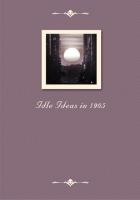Upon his return from the Wartburg, Luther completed his translation of the New Testament, and the gospel was soon after given to the people of Germany in their own language. This translation was received with great joy by all who loved the truth; but it was scornfully rejected by those who chose human traditions and the commandments of men.
The priests were alarmed at the thought that the common people would now be able to discuss with them the precepts of God's word, and that their own ignorance would thus be exposed. The weapons of their carnal reasoning were powerless against the sword of the Spirit. Rome summoned all her authority to prevent the circulation of the Scriptures; but decrees, anathemas, and tortures were alike in vain. The more she condemned and prohibited the Bible, the greater was the anxiety of the people to know what it really taught. All who could read were eager to study the word of God for themselves. They carried it about with them, and read and reread, and could not be satisfied until they had committed large portions to memory. Seeing the favor with which the New Testament was received, Luther immediately began the translation of the Old, and published it in parts as fast as completed.
Luther's writings were welcomed alike in city and in hamlet. "What Luther and his friends composed, others circulated. Monks, convinced of the unlawfulness of monastic obligations, desirous of exchanging a long life of slothfulness for one of active exertion, but too ignorant to proclaim the word of God, traveled through the provinces, visiting hamlets and cottages, where they sold the books of Luther and his friends. Germany soon swarmed with these bold colporteurs." --Ibid., b. 9, ch. 11.
These writings were studied with deep interest by rich and poor, the learned and the ignorant. At night the teachers of the village schools read them aloud to little groups gathered at the fireside. With every effort some souls would be convicted of the truth and, receiving the word with gladness, would in their turn tell the good news to others.
The words of Inspiration were verified: "The entrance of Thy words giveth light; it giveth understanding unto the ******." Psalm 119:130. The study of the Scriptures was working a mighty change in the minds and hearts of the people. The papal rule had placed upon its subjects an iron yoke which held them in ignorance and degradation. A superstitious observance of forms had been scrupulously maintained; but in all their service the heart and intellect had had little part. The preaching of Luther, setting forth the plain truths of God's word, and then the word itself, placed in the hands of the common people, had aroused their dormant powers, not only purifying and ennobling the spiritual nature, but imparting new strength and vigor to the intellect.
Persons of all ranks were to be seen with the Bible in their hands, defending the doctrines of the Reformation. The papists who had left the study of the Scriptures to the priests and monks now called upon them to come forward and refute the new teachings. But, ignorant alike of the Scriptures and of the power of God, priests and friars were totally defeated by those whom they had denounced as unlearned and heretical. "Unhappily,"said a Catholic writer, "Luther had persuaded his followers to put no faith in any other oracle than the Holy Scriptures."--D'Aubigne, b. 9, ch. 11.
Crowds would gather to hear the truth advocated by men of little education, and even discussed by them with learned and eloquent theologians. The shameful ignorance of these great men was made apparent as their arguments were met by the ****** teachings of God's word. Laborers, soldiers, women, and even children, were better acquainted with the Bible teachings than were the priests and learned doctors.
The contrast between the disciples of the gospel and the upholders of popish superstition was no less manifest in the ranks of scholars than among the common people. "Opposed to the old champions of the hierarchy, who had neglected the study of languages and the cultivation of literature, . . . were generous-minded youth, devoted to study, investigating Scripture, and familiarizing themselves with the masterpieces of antiquity. Possessing an active mind, an elevated soul, and intrepid heart, these young men soon acquired such knowledge that for a long period none could compete with them.
. . . Accordingly, when these youthful defenders of the Reformation met the Romish doctors in any assembly, they attacked them with such ease and confidence that these ignorant men hesitated, became embarrassed, and fell into a contempt merited in the eyes of all."--Ibid., b. 9, ch. 11.
As the Romish clergy saw their congregations diminishing, they invoked the aid of the magistrates, and by every means in their power endeavored to bring back their hearers. But the people had found in the new teachings that which supplied the wants of their souls, and they turned away from those who had so long fed them with the worthless husks of superstitious rites and human traditions.
When persecution was kindled against the teachers of the truth, they gave heed to the words of Christ: "When they persecute you in this city, flee ye into another." Matthew 10:23. The light penetrated everywhere. The fugitives would find somewhere a hospitable door opened to them, and there abiding, they would preach Christ, sometimes in the church, or, if denied that privilege, in private houses or in the open air. Wherever they could obtain a hearing was a consecrated temple. The truth, proclaimed with such energy and assurance, spread with irresistible power.
In vain both ecclesiastical and civil authorities were invoked to crush the heresy. In vain they resorted to imprisonment, torture, fire, and sword.
Thousands of believers sealed their faith with their blood, and yet the work went on. Persecution served only to extend the truth, and the fanaticism which Satan endeavored to unite with it resulted in ****** more clear the contrast between the work of Satan and the work of God.















